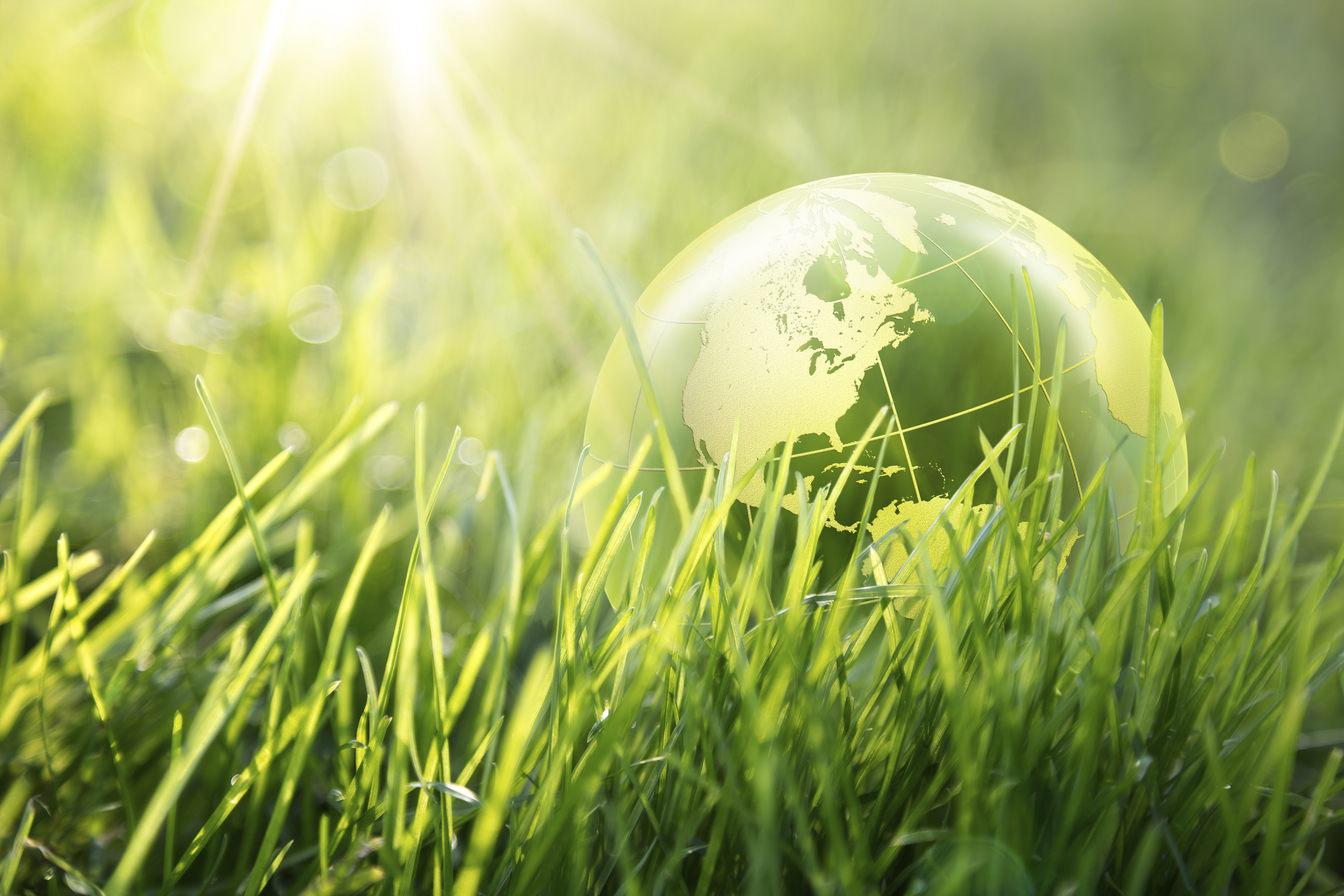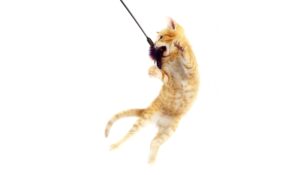Green Grows the Pet Industry
Alexandra Wepner //April 1, 2016//
 When it comes to trends, few product categories come to mind faster than “green” and “eco-friendly.” Products made with locally-sourced ingredients, recycled materials or through sustainable manufacturing procedures have garnered more and more consumer attention and, therefore, more dollars. For retailers looking to stay on the cutting edge of market trends: look no further than the “green” category.
When it comes to trends, few product categories come to mind faster than “green” and “eco-friendly.” Products made with locally-sourced ingredients, recycled materials or through sustainable manufacturing procedures have garnered more and more consumer attention and, therefore, more dollars. For retailers looking to stay on the cutting edge of market trends: look no further than the “green” category.
According to Packaged Facts, the movement toward sustainable practices in the pet industry has been underway for quite some time, “beginning with recycling efforts, expanding to bio-based/biodegradable materials and now encompassing a variety of initiatives driven by consumer demand.” Consumers view companies with eco-friendly initiatives positively and are demanding products used with eco-friendly, “natural” ingredients and materials.
Experts predict continued growth in the natural category, which includes pet food and pet care products. As reported by Packaged Facts, U.S. retail sales of natural pet products saw a “compound annual growth rate of 15.2 percent” from 2010 to 2014.
Pet food makes up the largest share of the natural category, with pet care being broken down into health and “other” products. Pet health products range from grooming supplies to clean-up products and supplements. The “other” category includes anything from bedding and toys to collars, according the Packaged Facts’ October 2014 report “Natural, Organic and Eco-Friendly Pet Products in the U.S.”
The study found that, between 2010 and 2014, the “other” pet products category “grew the fastest, with a 13 percent compound annual growth rate lifting sales to $106 million.” Pet health sales also grew by 7 percent to reach $200 million and cat litter alone reached $359 million in sales after a compound annual growth rate of 8 percent, according to Packaged Facts.
The data is clear: “eco-friendly” and “natural” pet products are part of a profitable and burgeoning section of the market. What’s even more encouraging is the fact that pet specialty businesses maintain dominance in this category. According to the Packaged Facts report, the pet specialty channel “accounts for 73 percent of the market, breaking out into 76 percent of pet food sales and 48 percent of pet care sales.” While mass market and big box stores begin to stake their claim to the natural category, pet specialty businesses remain in the lead.
Just as consumers have become more knowledgeable and concerned about what goes into the production and preparation of their own food, they are taking the ingredients in their pets’ food more seriously. Packaged Facts’ October 2014 Natural Pet Products report found that, “when compared to consumers overall, pet product purchasers show a greater willingness to seek out organic products, products that had fewer/simpler ingredients and products formulated with no GMOs.” Several companies are picking up on this trend and revolutionizing their chews, treats and foods to fit the bill.
Greener Ingredients
Barkworthies, makers of all-natural, minimally processed canine chews, repurpose animal portions to reduce overall waste. With a promise to “never include anything artificial in any one of their products,” Barkworthies is a brand that combines a commitment to quality ingredients and sustainable manufacturing, both of which only continue to grow in popularity with consumers.
International Veterinary Sciences (IVS), a division of Animal Nutritional Industries, Inc., produces supplements and pet health products and is based in Anaheim, California. Quick Bath is the company’s line of hygienic products for cats and dogs. Quick Bath wipes “remove bacteria and odors from your pets’ skin” and contain vitamins A and E as well as aloe vera to promote skin and coat health. The brand also offers an herbal dog shampoo and conditioner with a tearless formula.
“Our mission of making life better for pets and the people that love them is at the core of everything we do,” said Ara Bohchalian, CEO of IVS. “We invest a great deal of research into sourcing healthy, natural and health-promoting ingredients into each of our pet supplements and offer an unwavering commitment to the health of pets and that of our planet.”
Offering cleaning products provides pet store owners with repeat business opportunities, as pet owners will continuously and frequently need to buy cleaning products. Wondercide manufactures U.S.A.-made pet and environmentally-friendly pest control products in an attempt to reduce the use of dangerous pesticides in homes. The products safeguard homes and pets against fleas, ticks and other household pests using non-toxic, food-grade ingredients.
“Today, our full line of natural products protects families around the world without the use of harsh chemicals,” said Stephanie Boone, CEO of Wondercide. “We’re proud to offer solutions that are truly safe and effective.”
Reducing and Recycling
Many companies and brands have made commitments to sustainable practices and responsible ingredient sourcing that follows their products from formulation to packaging.
“Far beyond the products we manufacture and provide to the marketplace, sustainability is a core value for our organization,” said Samuel Cohen, vice president of marketing and sales at Healthy Pet. “We feel that Healthy Pet truly and fully embodies the idea of sustainability, both economically and ecologically.”
Cohen explained that the location of the company’s facilities among large supplies of natural fiber and major transportation ways allows for source materials to travel only a short distance to be manufactured into Healthy Pet products, which are then accessible to most customers within just a one or two days’ drive.
“Second only to food, cat litter is the most purchased pet product in the U.S.,” Cohen said, citing that much of this non-biodegradable traditional litter ends up in landfills. “Healthy Pet’s biodegradable ökocat Natural Cat Litters offer an all-natural and virtually dust free product, made of anti-bacterial coniferous woods, which not only closely mimic cats’ natural habitat but also inhibits the growth of bacteria and germs.”
Molly Mutt, manufacturer of fashionably designed dog beds, have reimagined the very design of dog bedding products in an effort to reduce their carbon footprint.
“We remain a leader in the industry with duvet covers that eliminate 100 percent of the energy and greenhouse gas emissions associated with other bedding,” said Sarah Julian of Off Leash Communications, who works on Molly Mutt’s behalf. “How? By creating a product that uses only upcycled textiles that you provide yourself. Instead of relying on alternative fillings, Molly Mutt dog duvets come without stuffing, allowing pet owners to use their old clothing, bedding, pet toys and other textiles that would otherwise be destined for the landfill. That means no additional energy or carbon is used to create stuffing for our beds.”
Cycle Dog is a company that produces a range of items—from collars to bowls and toys—using post-consumer recycled materials. Though the process is at times expensive, the finished product is one that is more effective at resisting bacteria growth (and therefore offensive odors) and reduces landfill waste.
“Our anti-bacterial collars, leads, bowls, Ecolast rubber toys and Fuzzies Soft Toys all use reclaimed bike inner tube rubber,” said Lanette Fidrych, president of Cycle Dog. “The reclaimed tubes are a great material because they dry quickly and resist bacteria growth. Cycle Dog has saved over 100,000 tubes from the landfill the last year—enough to completely fill four 40-foot tractor trailers!”
Less is More
Plenty of pet companies have ingrained ideas about sustainability into the very mission of their brands and the design processes behind them.
For example, PAW5 has the Four from Five Promise, through which the company aims to “enrich the lives of our pets, our employees, our community and our world.” The strategy includes plans to (1) tread lightly, making as little an impact on the environment as possible through local, close-loop and zero waste manufacturing processes; (2) commit fully, as to be responsible corporate citizens and community members; (3) design smart, as a team set on enriching the lives of dogs through creating challenging and fulfilling experiences and (4) give actively, donating time and products to support needy animals. The company produces the Rock ‘N Bowl, a combination bowl and puzzle feeder that is “adding environmental enrichment to mealtime.”
Founded on eco-friendly principles, The Green Pet Shop is run by father and son Larry and Brian Wright. The company produces a range of environmentally responsible products—cleaners, feeding bowls and warming pads, to name just a few. The Cool Pet Pad is a therapeutic item specifically for arthritic pets, using the companion’s weight to activate warmth absorbing gel. It recharges quickly without water, batteries or electricity.
Supporting sustainability initiatives becomes even more appealing to retailers and manufacturers when it is shown that doing so not only benefits the environment but also cuts costs and allows for savings to be passed along to consumers.
“The truth is, we decided to be eco-conscious since day one when we also needed to be cost conscious,” said Spencer Williams, owner and president of West Paw Design. “It just so happens that our money saving efforts are also good for the planet.”
West Paw Design uses eco-friendly and post-consumer materials in their products and packaging, from hemp to organic cotton and catnip. They also encourage customers to participate in their Loop Recycling Program. Customers send back recyclable products and West Paw Design covers the costs of recycling the plastic. In 2014, the program saved over 1,000 pounds of raw material from entering landfills.
Pet store owners’ herp hobbyist and bird-owning customers will be happy to hear that sustainable products are not only made for dogs, cats and small animals. Zoo Med produces a number of green products and their facilities are constructed with sustainability in mind. All flooring is made of bamboo (rather than petrochemical carpet), lunch tables are constructed with recycled milk cartons and 40 percent of employees carpool or ride a bike to work. Much of the facility lighting and energy used in vehicles like fork lifts have also been converted to be more environmentally conscious.
“Zoo Med’s consideration for green values directs the company on its journey toward the appreciation and preservation of wildlife and the natural environment,” said Ashley Rademacher, animal care and education coordinator for the company. “Zoo Med strives to be on the forefront of green practices in hopes of influencing other pet companies to do what they can to help protect this fragile, ever-changing planet that we all share.”
For bird and small animal owners, there is Greenfeather Bird Supply. The company is certified green by Green America and its products are made with sustainable, recyclable, up-cycled, fair trade, non-toxic and organic materials. The Up-Cycled line of toys is one example of these ideals at work. The toys are made with parts that can either be recycled or composited and many are also made with organic materials.
For example, the UpCycle Sr is hung on paper rope and loaded with hardwood and softwood shapes with water ink design and ridged paper board. The variety of textures allows for birds’ beaks or small animals’ teeth to chew and shred the toy.
“As a Green America certified company, Greenfeather Bird Supply makes conscientious choices in how the office works and the products that we use,” said Dena Tucker on behalf of the company. “GFB Toys’ priority is always to maintain the highest level of quality in creating toys and products that help enrich our companion animal’s life.”
Similarly, Worldwise, Inc., has pledged to produce environmentally friendly products that are attractive, affordable and accessible to all consumers. Each Worldwise product packaging includes EcoAdvantages, which clearly identify the environmental advantages and materials of the product and can be used to compare to traditional brands. Worldwise manufactures cat products, including litter boxes, scoops, litter bags and scratching toys, among other things. These products are made with recycled plastics, corrugated cardboard, paper, wood and visco-elastic foam. The catnip used in Worldwise toys is also 100 percent certified organic and made without pesticides, chemicals or artificial ingredients.
Eco Advocacy
The Pet Industry Sustainability Coalition (PISC) is dedicated to sustainability initiatives, specifically within the pet industry. With over 100 member companies, the PISC is a much-needed positive force among pet professionals.
“With finite resources available on the planet, sustainability is an important resiliency strategy for the pet industry,” said Caitlyn Bolton, director of the PISC. “Interestingly, while retailers do not have the largest footprint in the sustainability of a product, the retailer has a unique role to play in leveraging their power to encourage manufacturers and brands to improve their products. Retailers are the prime motivator of any industry because brands need to sell product.”
According to Bolton, the technological revolution may have been an accelerator of the eco-friendly trends behind the Green category’s growth.
“Access to technology has dramatically increased the amount of information consumers have at their fingertips,” Bolton said. “This access to information has fueled a new generation of consumers that now expect companies to ensure that products are made in a responsible way. The primary questions consumers ask are: Where is this product made? What is it made of, and who makes it?”
Looking toward the future, Bolton explained that the industry is indeed moving in a positive direction. Pet retailers can both meet consumers’ needs and positively affect the global community by supporting sustainability initiatives.
“PISC would like to see all retailers provide incentives for brands that are making improvements,” Bolton said. “We would like to see an increase in publically available information regarding how and what products are made of and we would like to see more companies innovating products and services that protect valuable resources like fresh water and clean air, which are such critical components to a happy life for people and pets.”



















